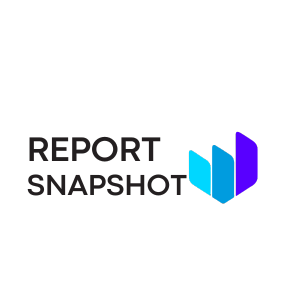In today’s digital jungle, social media isn’t just a nice-to-have; it’s the lifeblood of any marketing strategy. For a digital marketing agency, crafting the right content is like finding the perfect avocado at the grocery store—tricky but oh-so-rewarding. With a well-planned social media strategy, agencies can turn followers into loyal customers faster than you can say “viral post.”
Imagine a world where your content not only grabs attention but also sparks conversations and drives engagement. It’s not just about posting pretty pictures; it’s about creating a brand voice that resonates and connects. Dive into the art of social media content creation, and watch as your agency transforms into a powerhouse of creativity and influence. After all, in the realm of digital marketing, the right content can make all the difference between blending in and standing out.
social media content for digital marketing agency
Social media content serves as a vital tool for digital marketing agencies in reaching target audiences. Engaging posts capture attention, spark interactions, and stimulate brand conversations. High-quality content fosters brand loyalty, encouraging potential customers to connect and interact with the brand.
Effective content supports broader marketing strategies, increasing traffic to agency websites. Agencies that produce shareable content enhance their visibility across social platforms. Increased visibility can lead to higher follower counts, promoting a stronger online presence.
Visual elements, like images and videos, enrich social media content, making posts more appealing. Posts with visuals receive 94% more engagement than those without. Incorporating infographics also simplifies complex information, facilitating better understanding and retention.
Timely content creates urgency, encouraging followers to take immediate action. Posts related to current events or trends attract more engagement. Users are more likely to participate in discussions about relevant topics that resonate with their interests.
Original content helps agencies establish authority in their field, differentiating them from competitors. Agencies that share industry insights and analyses position themselves as thought leaders, enhancing credibility. Consistent messaging reinforces brand identity, ensuring audiences recognize the agency’s voice across various platforms.
Measuring content performance assists agencies in refining their strategies. Key metrics, such as engagement rates and reach, provide insights into what resonates with the audience. Agencies that analyze this data adapt their content to maintain relevance and engagement.
Social media content not only strengthens community ties but also attracts potential clients. Engaging posts encourage followers to share their experiences, expanding brand reach. By prioritizing authentic interactions, digital marketing agencies can turn social media into a powerful marketing asset.
Types Of Social Media Content

Digital marketing agencies utilize various types of social media content to engage audiences and promote brands effectively.
Visual Content
Visual content captures attention instantly and encourages interaction. Images and graphics should align with brand aesthetics to create recognition. Infographics simplify complex information, making it digestible for viewers. Videos convey messages dynamically, often facilitating higher engagement rates than static posts. Agencies that use high-quality visuals enhance their storytelling and reinforce their brand identity. Consistency in visual elements strengthens brand recall and boosts audience retention.
Written Content
Written content remains a cornerstone of social media strategies. Captivating captions accompanied by relevant hashtags improve discoverability. Blog posts shared on social channels drive traffic and showcase expertise, while industry news and tips position agencies as thought leaders. Engaging storytelling fosters connections, encouraging audiences to share and comment. Agencies can diversify their written content through quotes, testimonials, and case studies, which build trust and credibility within their networks.
Interactive Content
Interactive content invites user participation, greatly enhancing engagement. Polls and quizzes encourage followers to share opinions, creating valuable insights for agencies. Contests and giveaways drive excitement, while encouraging sharing expands reach. Additionally, live Q&A sessions help build community by directly addressing audience queries. Agencies that prioritize interactive content create a two-way communication channel, strengthening relationships with their audiences and fostering brand loyalty.
Strategies For Creating Effective Social Media Content
Creating effective social media content requires a strategic approach. Focus on understanding your target audience and setting clear objectives to enhance engagement and achieve marketing goals.
Understanding Target Audience
Agencies must know their audience intimately. Research demographics, interests, and behaviors to create personalized content. Analyze engagement metrics to identify what resonates with followers. Develop audience personas to guide content creation. Leveraging insights from surveys and polls enhances relevance. Tailoring messages to specific segments encourages interaction. Content that speaks directly to audience needs fosters loyalty and trust. Keeping the audience in mind drives effective communication.
Setting Clear Objectives
Establishing clear objectives builds the foundation for social media strategy. Define goals like increasing brand awareness, boosting engagement, or driving website traffic. Use the SMART criteria—specific, measurable, achievable, relevant, and time-bound—to create actionable targets. Developing a content calendar aligns posts with objectives, ensuring consistency and focus. Periodic evaluations measure progress, allowing for adjustments when necessary. Clarifying objectives streamlines efforts and maximizes impact, leading to more effective social media outcomes.
Platforms For Social Media Content Distribution
Digital marketing agencies utilize various platforms to distribute social media content effectively. Each platform offers unique features catering to different audience preferences.
Facebook ranks as one of the most widely used platforms for reaching diverse audiences. Its robust advertising tools allow agencies to target specific demographics, enhancing content visibility. Agencies can share various content types, including videos, articles, and live streams. Posts that encourage engagement, such as questions and polls, foster community interaction. Utilizing Facebook Groups can also create dedicated spaces for user discussions, further strengthening brand connections.
Instagram thrives on visual content, making it ideal for showcasing brands through stunning images and videos. It supports stories, reels, and IGTV, offering varied formats for creativity. Digital marketing agencies should prioritize high-quality visuals to capture audience attention. Hashtags play a crucial role in extending reach beyond followers. Engaging captions that encourage comments can lead to increased interaction, enhancing brand loyalty and community engagement on the platform.
LinkedIn serves as a professional networking platform suited for B2B marketing. It allows agencies to share industry insights, company updates, and thought leadership articles. Agencies can connect with key decision-makers through targeted content. Using rich media, such as videos and infographics, can make posts more appealing. Joining relevant groups provides an opportunity for agencies to engage with industry discussions, positioning them as trusted resources.
Measuring Success Of Social Media Content
Tracking the success of social media content involves several key metrics. Engagement rates, including likes, shares, and comments, indicate how well content resonates with the audience. Agencies can analyze these metrics to determine the effectiveness of their posts and adjust strategies accordingly.
Reach and impressions offer insights into how many users view content. High reach numbers demonstrate that posts are widely circulated, while impressions indicate repeated views. Monitoring these metrics aids agencies in evaluating their overall visibility on various platforms.
Conversion rates also play a critical role in measuring success. If content successfully leads to desired actions, like sign-ups or purchases, agencies can ascertain its effectiveness. Additionally, analyzing click-through rates (CTR) on links helps in understanding traffic driving towards specific goals.
Furthermore, audience growth metrics, such as follower count and demographic insights, provide valuable information. Significant follower growth often correlates with content success, showing an increasing interest in the brand. Agencies must consider this alongside audience engagement to develop a comprehensive view.
Using tools like Google Analytics and native social media insights assists in tracking these performance metrics. These tools can aggregate data, allowing for detailed analysis and reporting. Adjustments based on these insights can enhance future content strategies.
Finally, qualitative feedback, gathered through comments and direct messages, provides context beyond numbers. It reveals audience sentiment and preferences, offering guidance on future content direction. Agencies equipped with this knowledge can refine their approach to further engage and convert their audience.
foster meaningful interactions
Social media content is an indispensable element for digital marketing agencies aiming to thrive in a competitive landscape. By focusing on engaging and diverse content types, agencies can effectively connect with their target audience and foster meaningful interactions. Understanding audience preferences and setting clear objectives are vital for crafting impactful posts that resonate.
As agencies harness the power of various platforms, they can enhance their visibility and strengthen brand loyalty. Regularly measuring success through key metrics not only informs content strategies but also drives continuous improvement. Ultimately, a well-executed social media strategy can transform an agency’s online presence and establish it as a leader in the digital marketing realm.




